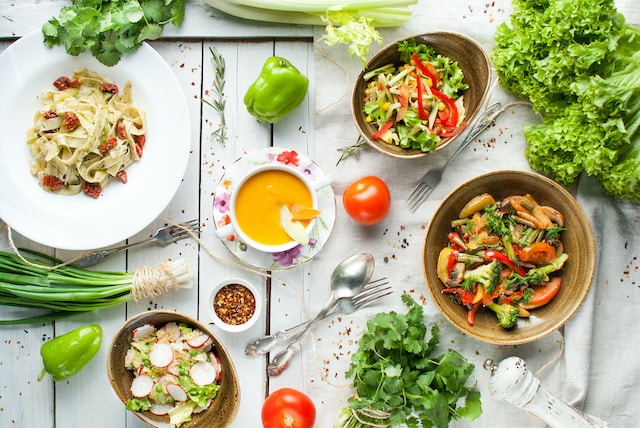Eggs are one of the most common animal products that people consume. They are rich in protein, healthy fats, and various vitamins and minerals. However, eggs are also a source of controversy, especially for vegans. Vegans are people who avoid eating any foods that come from animals, including eggs. But why do vegans avoid eggs, and what are some plant-based alternatives? In this article, we will answer these questions and more. We will also share some interesting facts and FAQs about eggs and veganism.
Why Do Vegans Avoid Eggs?
There are several reasons why vegans avoid eggs, but the main one is ethical. Vegans believe that animals have the right to live free from exploitation and harm, and that using them for food or any other purpose is wrong. Vegans also consider the environmental and health impacts of animal agriculture, which are often negative.
Eggs are produced by female chickens, who are kept in crowded and unsanitary conditions in most commercial farms. They are subjected to various forms of abuse, such as debeaking, forced molting, and selective breeding. They are also killed when their egg production declines, usually after one or two years of life. Male chicks, who are useless for the egg industry, are killed shortly after hatching, either by gassing, suffocating, or grinding.
Even eggs that are labeled as “free-range”, “organic”, or “cage-free” are not necessarily ethical or humane. These terms are often vague and misleading, and do not guarantee that the chickens are treated well or have access to natural behaviors. For example, “free-range” chickens may still be confined in large sheds with thousands of other birds, and have little or no access to the outdoors. “Organic” chickens may still be fed with genetically modified or pesticide-laden feed, and be given antibiotics or hormones. “Cage-free” chickens may still be crammed in wire-mesh cages that prevent them from spreading their wings or moving freely.
Therefore, vegans avoid eggs because they do not want to support the suffering and death of chickens, and the environmental and health problems caused by the egg industry.
What Are Some Plant-Based Alternatives to Eggs?
Fortunately, vegans do not have to miss out on the taste and nutrition of eggs. There are many plant-based alternatives that can replace eggs in various recipes and dishes. Some of the most popular ones are:
- Tofu: Tofu is made from soybeans, and has a similar texture and protein content to eggs. It can be scrambled, fried, baked, or blended to make vegan omelets, quiches, frittatas, or egg salads. Tofu can also be seasoned with spices, herbs, nutritional yeast, or black salt to mimic the flavor of eggs.
- Chickpea flour: Chickpea flour is made from ground chickpeas, and has a nutty and savory taste. It can be mixed with water, oil, and spices to make vegan egg batters, which can be used to make pancakes, crepes, waffles, or French toast. Chickpea flour can also be used to make vegan omelets, quiches, or frittatas, by adding some vegetables and baking or frying them.
- Flax seeds or chia seeds: Flax seeds and chia seeds are rich in omega-3 fatty acids, fiber, and antioxidants. They can be ground and mixed with water to make vegan egg replacers, which can be used to bind or moisten baked goods, such as muffins, cookies, cakes, or breads. Flax seeds and chia seeds can also be used to make vegan egg washes, which can be brushed on pastries or pies to give them a golden and crispy crust.
- Aquafaba: Aquafaba is the liquid that is left over from cooking or canning chickpeas. It has a similar consistency and protein content to egg whites, and can be whipped into stiff peaks. Aquafaba can be used to make vegan meringues, macarons, marshmallows, nougat, or whipped cream. Aquafaba can also be used to make vegan mayonnaise, aioli, or hollandaise sauce, by blending it with oil, vinegar, and seasonings.
- Plant-based egg products: There are also some ready-made plant-based egg products that are available in the market, such as JUST Egg, VeganEgg, or Follow Your Heart. These products are usually made from mung bean protein, chickpea flour, or soy milk powder, and can be used to make vegan scrambled eggs, omelets, or quiches. They are convenient and easy to use, and have a similar appearance and taste to real eggs.
Interesting Facts about Eggs and Veganism
Here are some interesting facts and FAQs about eggs and veganism that you may not know:
- The average American consumes about 279 eggs per year, which is equivalent to about 23 dozen eggs.
- The world’s largest egg was laid by a hen in England in 2010, and measured 9.1 inches in circumference and weighed 12 ounces.
- Eggs are one of the most common food allergens, especially among children. Symptoms of egg allergy can include hives, swelling, nausea, vomiting, diarrhea, or anaphylaxis.
- Vegans do not eat honey, as it is produced by bees, who are also animals. Vegans also avoid other bee products, such as beeswax, propolis, or royal jelly.
- Vegans can get enough protein, calcium, iron, and vitamin B12 from plant-based sources, such as beans, nuts, seeds, grains, vegetables, fruits, fortified foods, or supplements.
- Vegans are not necessarily healthier than omnivores, as they can still eat unhealthy foods, such as chips, candy, soda, or vegan junk food. Vegans need to eat a balanced and varied diet, and pay attention to their nutrient intake and needs.
Conclusion
Eggs are not vegan, as they are an animal product that involves the exploitation and harm of chickens. Vegans avoid eggs for ethical, environmental, and health reasons, and opt for plant-based alternatives instead. There are many plant-based alternatives that can replace eggs in various recipes and dishes, such as tofu, chickpea flour, flax seeds, aquafaba, or plant-based egg products. Vegans can enjoy the taste and nutrition of eggs, without compromising their values or harming animals.



